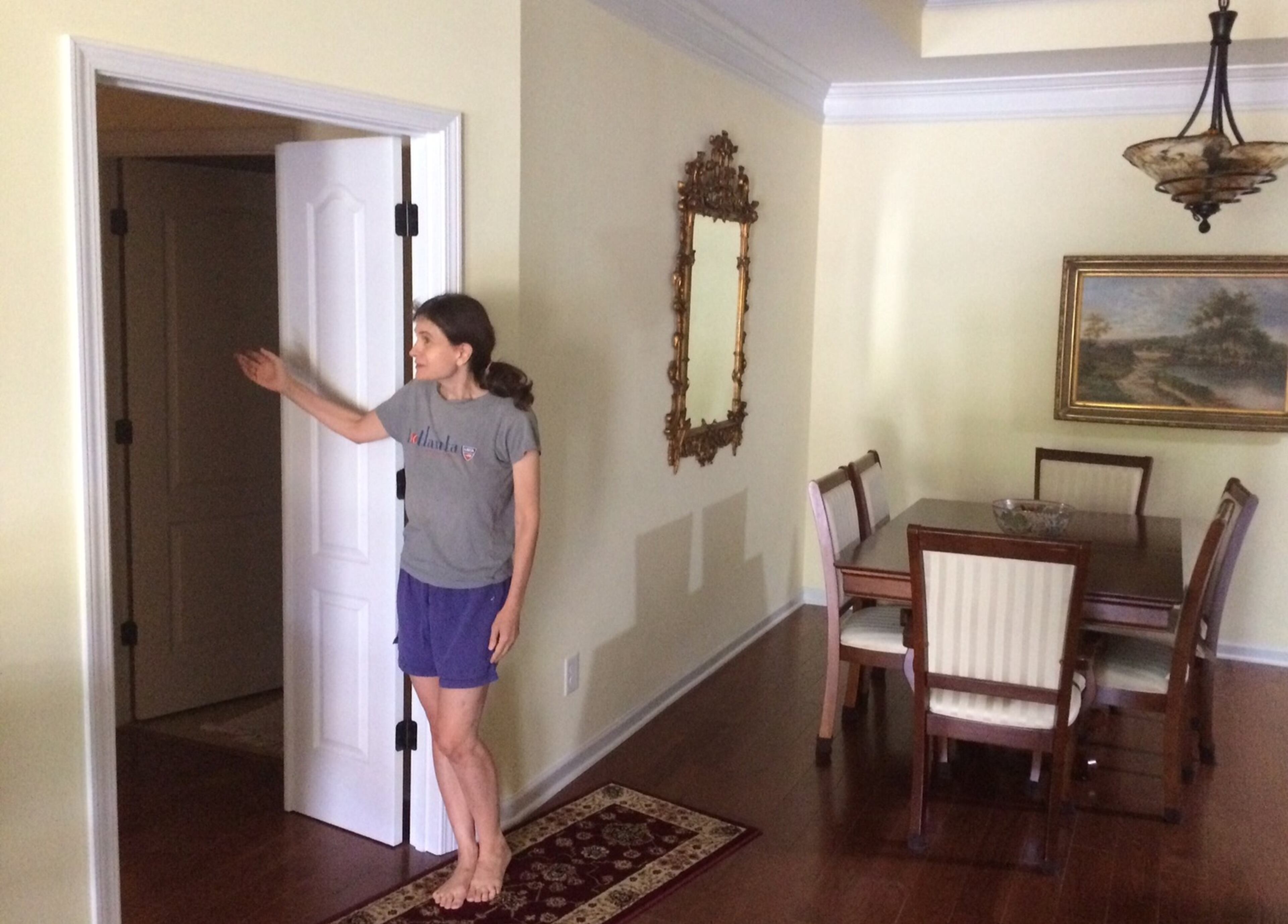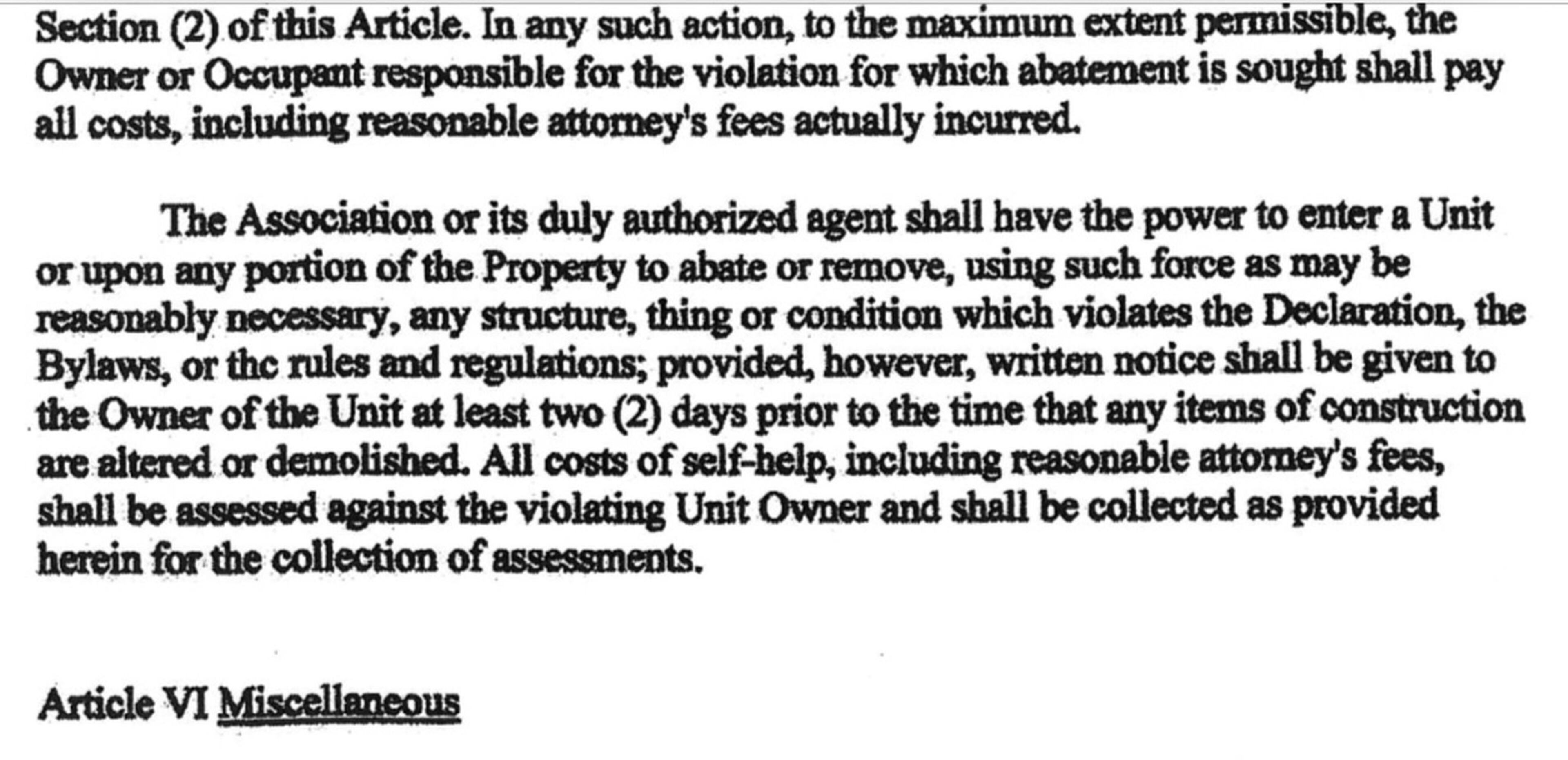Torpy at Large: Knock, knock! The HOA is here for an inside inspection
If you’re reading this, there’s a good chance you live under the vigilant eye of a homeowners association.
Estimates say one-fifth to a quarter of Americans live in situations where a gaggle of neighbors have the right — no, the duty — to make sure you keep up your part of the bargain and not let your home degenerate into a tumbledown dump. It's all about keeping up property values.

The local HOA board is part local public conscience, part watchdog. It will prevent your neighbor from laying to rest his rusting pickup in his driveway or painting his home like an Easter Egg.
But homeowners are often caught off-guard when they receive a scolding legalese letter after painting their home the wrong shade of beige or leave their barbecue grill outside too long.
HOA boards are private governments that can gently nudge neighbors into becoming their home-owning best or they can be kangaroo courts that afford Normal Nobodies a chance to wield serious sway over their fellow man.
Boards not only can cite shortcomings in the upkeep or decoration of surrounding properties, but they can fine, assess liens, shut off water and — I didn't know this until this week — demand to enter your home to investigate alleged violations of the community covenant.
Huh?
Case in point is Susan Asher, a technical writer who works at home and somehow got cross-ways with the board of Arbor Ridge, a gated 55-and-older community in West Cobb County.
Asher thinks some board members soured on her when she sent a letter asking that prayers at meetings not be so Christian-oriented (she is Jewish), or because she edited some verbiage on the community’s website and sent it to the board (she said the president thought the website’s author was offended).
In July, she got a letter saying that renting out a room violates the covenant and “must be stopped immediately.” A month later, another letter came saying the association wanted to inspect her unit to see if she had “subdivided it.”
The covenant says the association “shall have the power to enter a Unit or upon any portion of the Property to abate or remove, using force as may be necessary, any structure, thing or condition which violates the Declaration.”
The association must give “reasonable notice.”

Naturally, she freaked out a bit and called a lawyer. Asher has had a roommate since she moved in and said she was told by the builder it was allowed. It is. They must be 55 or older. Her roommate was 57 but he left in August, after the first letter came. A med student now lives there. He can stay as a guest, but roomies under 55 can’t pay rent.
A while back, she erected a door in a hallway to give the roomie some privacy in his bedroom as she blared her TV in the adjoining living room.
“I understand (the inspection) if this was some sort of drug thing,” she said. “But this? They’re trying to have freaking control of my life.”
Stan Lefco, her attorney, worked out a deal that allowed the HOA’s attorney and a management guy to enter. They quickly concluded that there was no violation and dropped the matter.

Lefco said he didn’t want to go to war. “When they go to higher court, the HOAs almost always win. They have broad power.”
The lawyer said this case came to a reasonable end but he has seen power-mad boards punish residents, or neighborhood feuds get waged through the lens of an HOA.
One client got his water cut off for falling behind in assessments. “He was effectively evicted from his unit,” Lefco said.
And one Cobb County condo dweller last week had to rip up some carpeting she installed in a hallway outside her unit (the existing carpet was threadbare) because she didn’t get prior approval. The carpet, he added, was similar to that it was replacing.
» RELATED: Gwinnett man sues HOA for right to build grandkids a treehouse
The Arbor Ridge HOA president, who lives in the same townhome quad as Asher, asked me to call the association’s attorney.

Attorney Robert Stein didn’t want to talk specifically about this case but said “right-of-entry” clauses are in covenants and then recorded with the deeds at the courthouse. “Courts look at them as contracts,” he said.
“If someone says, “Absolutely no,’ then you don’t have a right to go in without a court order,” he said. He added that while mandatory HOAs are very common with subdivisions that have been built in recent years, right-of-entry clauses are not.
Stein’s firm, Lazega & Johanson, has 20 lawyers and this is all they do, represent HOAs.
“It’s a pretty busy market,” he said.
In fact, Stein lives in an HOA community and served on the board. Putting up a fence that met the board’s architectural committee’s standards, he said, cost him more money.
“But it looks great,” Stein said. “I’m glad for the uniformity. It really helps preserve, protect and maintain” the community.
The Community Associations Institute estimates that there are 10,500 HOAs in Georgia. That organization said a poll found that 65 percent of residents in HOA communities are happy. That's down from 72 percent a decade ago.
An online poll by the Coalition for Community Housing Policy in the Public Interest found that 90 percent of HOA respondents have a beef. They are obviously the 35 percent from the first poll.
Such disputes are the fiber of community living, the result of folks residing near each other. A search of Atlanta Journal-Constitution files found that over the years we have written about HOA disputes: "Solar panels, a tree house, paint colors, a soccer team flag, an American flag, visible trash cans, (slightly) unkempt lawns, on-street parking, driveway parking, illegal shrubbery, pets, basketball backboards and, of course, pink flamingos.
It has always surprised me that here in Georgia, a place where liberty and self-determination are so important, where property rights are only slightly nudged out by Second Amendment rights, that people are so quick to turn over their paint color choices to neighbors.
Well, I suppose I don’t want to trudge next door to say, “I hate the drapery that is visible from the street.”
Sometimes a little freedom must be put aside.


